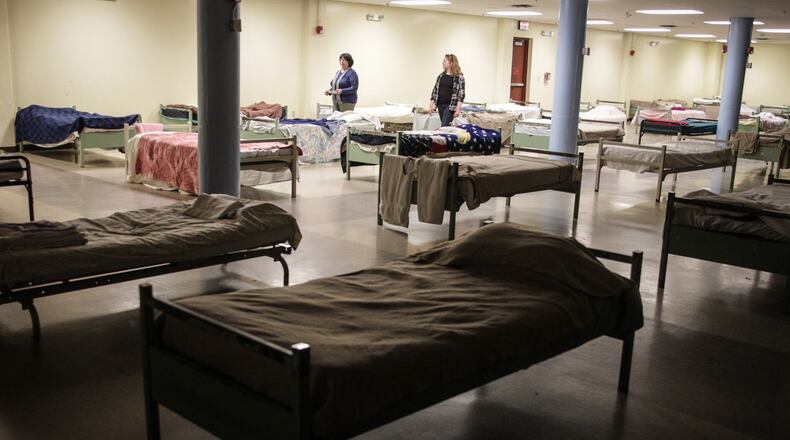On any given night in Montgomery County, more than 500 households are without a stable place to call home. This year’s observance of Hunger and Homelessness Awareness Week is especially urgent as we are faced with the pandemic and risks associated with congregate shelters and lack of access to proper hygiene.
In 2004, our County Administrator Deborah Feldman and Dayton City Manager Jim Dineen brought together faith-based organizations, our business community, health care, non-profits, colleges and universities to discuss how we could work together to build network that could address homelessness. At the time, we were all working in silos and each system had their own requirements. There was no clear path to help people move from one stage to another with the goal of arriving at secure housing.
The Homeless Solutions Task Force spent the better part of two years studying a myriad of issues about why people experience the loss of safe and adequate housing and the many programs then existing to try to help.
We now have four gateways where people can seek help: St. Vincent DePaul’s Shelter for Women and Families, the Gettysburg Shelter for Men, the Daybreak shelter for youth, the YWCA Domestic Violence Shelter, and the Miami Valley Housing Opportunities PATH Street Outreach Program.
Case management services create an action plan to address the steps an individual client should take to improve their specific situation. For instance, someone with behavioral health issues may have a very different path to secure housing than someone who is solely facing financial challenges.
In collaboration with the City of Dayton and the Veterans Administration, we’ve worked really hard to effectively end veterans' homelessness. When we become aware of a housing security issue involving a veteran, it is quickly resolved.
In recent years, we’ve adopted a diversion program where we keep people from becoming homeless in the first place. For example, if someone is on the verge of being evicted, we attempt to keep them from losing their current housing where possible.
The average length of time a person is homeless in Montgomery County is 44 days. With that in mind, we’ve created a 44-day challenge to help people understand the depth of the issue and become engaged in the solution. Examples include suggested reading and movies on the topic, sharing orange ribbon selfies, and supporting business that fight to end homelessness. It can be found here: http://bit.ly/44DayChallenge.
Our efforts to end homelessness certainly carry on that tradition of innovation of the Wright Brothers, Charles Kettering, Paul Lawrence Dunbar and Neal V. Loving. These efforts are something our citizens can be very proud of, especially if you have ever known anyone who has struggled with homelessness.
Rev. John Paddock is co-chair of the Homelessness Solutions Policy Board. Guest columns are submitted or requested fact-based opinion pieces typically of 300 to 450 words. Have an idea? Contact Community Impact Editor Amelia Robinson at arobinson@daytondailynews.com.

